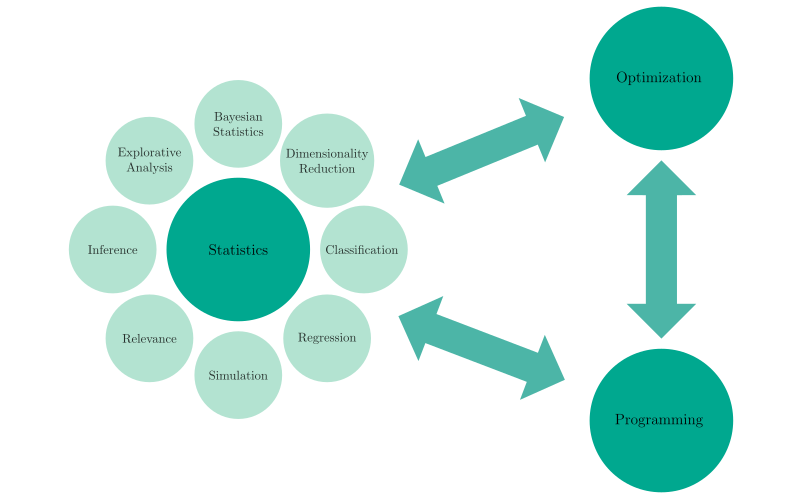What is Analytics?
Analytics refers to the entire process of extracting and analyzing information from data, analyzing it and, based on this, arriving at reliable insights and recommendations for action. The analytics process is the fundamental foundation of data-driven decision-making and management. Briefly, one could equate it with intelligent usage of data.
Within the analytics process, statistical methods of data analysis and machine learning algorithms represent the key methodological components. The most important general component of analytics is, however, the human being. He must formulate problems, input data and be able to apply the broad canon of methods correctly as well as to interpret, verify and generalize the results in a targeted manner. This distinguishes analytics from a data-based reporting system which solely publishes reports while neglecting the steps of intelligent extraction of data and strategic usage by humans.
Often the term "Big Data" is synonymously used with analytics. However, "Big Data" only refers to an infrastructural dimension. If the quantity of data is so enormous that a great amount of effort has to be expended into the technology for utilization of the data, then the data included in the analytics process is categorized as "Big Data".
Our profile

More precisely, we stand for the development, application and communication of statistical methods for evaluating, measuring and modeling high-dimensional data and correlations. The keywords in the illustration above run through all of our courses and are anchor points of our research activities.
We close research gaps within the framework of research projects and dissertations: we combine innovative scientific research with a broad repository of practical applications and problems.
